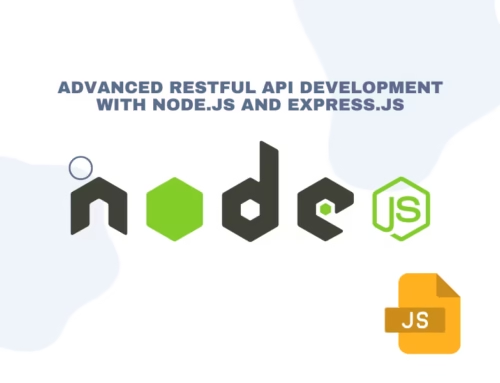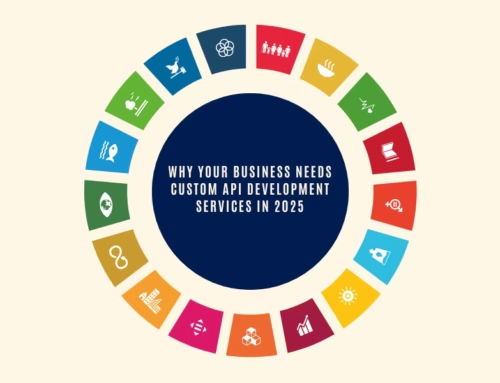Third-Party API vs Custom API: Which Should You Choose?
Introduction
In today’s digital-first world, API development services have become a cornerstone for businesses looking to integrate, innovate, and scale efficiently. Whether you’re building a mobile app, an e-commerce platform, or an enterprise-level solution, APIs determine how seamlessly your systems connect with third-party software and internal tools.
When considering API integration, one of the most common questions businesses face is: Should I choose a third-party API or invest in a custom API? Both options offer unique benefits and limitations, and the right decision depends on your business goals, budget, and scalability requirements.
In this blog, we’ll explore the key differences between third-party and custom APIs, analyze their pros and cons, and help you decide which is the best fit for your organization.
What Is an API and Why Does It Matter?
An API (Application Programming Interface) acts as a bridge between two systems, allowing them to exchange data securely and efficiently. For businesses, APIs:
- Enable faster integration with other software.
- Reduce repetitive development work.
- Allow scaling by adding functionalities without rebuilding core systems.
- Improve customer experience by offering seamless services.
Whether third-party or custom-built, APIs form the backbone of modern applications, making their selection a strategic decision.
Third-Party APIs: Ready-Made Solutions
What Are Third-Party APIs?
Third-party APIs are pre-built, external services created by another provider. Instead of building everything from scratch, businesses can integrate these APIs to add features quickly. Examples include:
- Stripe or PayPal for payments.
- Google Maps for location services.
- Twilio for communication and messaging.
Benefits of Third-Party APIs
- Speed of Deployment – Immediate integration saves time.
- Lower Initial Costs – No need for extensive development.
- Reliability – Established providers maintain uptime and security.
- Scalability – Handle high traffic without internal infrastructure costs.
Drawbacks of Third-Party APIs
- Limited Customization – Features are restricted to what the provider offers.
- Vendor Dependence – If the API provider changes pricing or shuts down, your system is affected.
- Hidden Costs – Subscription fees or pay-per-use models may scale up expenses.
- Data Privacy Risks – Sensitive data flows through external systems.
Custom APIs: Tailored for Your Business
What Are Custom APIs?
Custom APIs are developed in-house or by specialized API development services providers to meet your exact business needs. They connect your internal systems or external partners in a way that aligns with your workflows.
Benefits of Custom APIs
- Full Control – Tailor features to your unique requirements.
- Enhanced Security – Build APIs with compliance and data privacy in mind.
- Scalability – Expand features as your business grows.
- Seamless Integration – Designed to work with your existing ecosystem.
Drawbacks of Custom APIs
- Higher Initial Investment – Requires time, skilled developers, and budget.
- Ongoing Maintenance – Your team is responsible for updates and support.
- Longer Development Cycle – Not as immediate as plugging in a third-party API.
Third-Party API vs Custom API: A Detailed Comparison
| Factor | Third-Party API | Custom API |
|---|---|---|
| Cost | Lower upfront, higher long-term | Higher upfront, lower long-term |
| Customization | Limited | Full flexibility |
| Speed of Deployment | Immediate | Slower (requires development) |
| Scalability | Provider-dependent | Business-driven |
| Security | Shared responsibility | Fully controlled by you |
| Vendor Dependence | High | None |
When Should You Choose Third-Party APIs?
- If you’re a startup with limited resources.
- When you need fast deployment (e.g., payment gateway).
- For non-core functionalities (e.g., SMS notifications, maps).
When Should You Choose Custom APIs?
- If your business requires unique workflows or niche solutions.
- When dealing with sensitive data (finance, healthcare, legal).
- For enterprises that need long-term scalability and independence.
- If you want to avoid vendor lock-in and hidden costs.
How API Development Services Help You Decide
Partnering with an experienced provider of API development services ensures:
- Technical expertise in building secure, scalable, and reliable APIs.
- Consulting support to evaluate whether third-party or custom solutions fit your goals.
- Seamless integration across mobile apps, web platforms, and enterprise software.
- Future-proof solutions that align with growth and digital transformation strategies.
Explore our specialized Custom API Development Services, Web Development Services, and Mobile App Development to see how we can power your business integrations.
Conclusion
Choosing between third-party APIs and custom APIs is not a one-size-fits-all decision. Third-party APIs are best for speed and cost-effectiveness in non-core areas, while custom APIs are invaluable for businesses seeking long-term scalability, security, and unique features.
By leveraging expert API development services, you can find the right balance between convenience and customization—ensuring your systems are future-ready.
Frequently Asked Questions
API development services involve designing, building, and integrating APIs that enable applications to communicate and exchange data securely.
Most established third-party APIs follow strong security standards, but sensitive industries may prefer custom APIs for better control.
The timeline depends on complexity—simple APIs can take weeks, while enterprise-level APIs may take months.
Third-party APIs are cheaper upfront but may cost more over time. Custom APIs require higher initial investment but often save costs long-term.
Yes. Many businesses adopt a hybrid approach, combining third-party APIs for non-core tasks and custom APIs for critical processes.
Get Started Today
Contact us today for a free consultation and get one step closer to your next big innovation.



